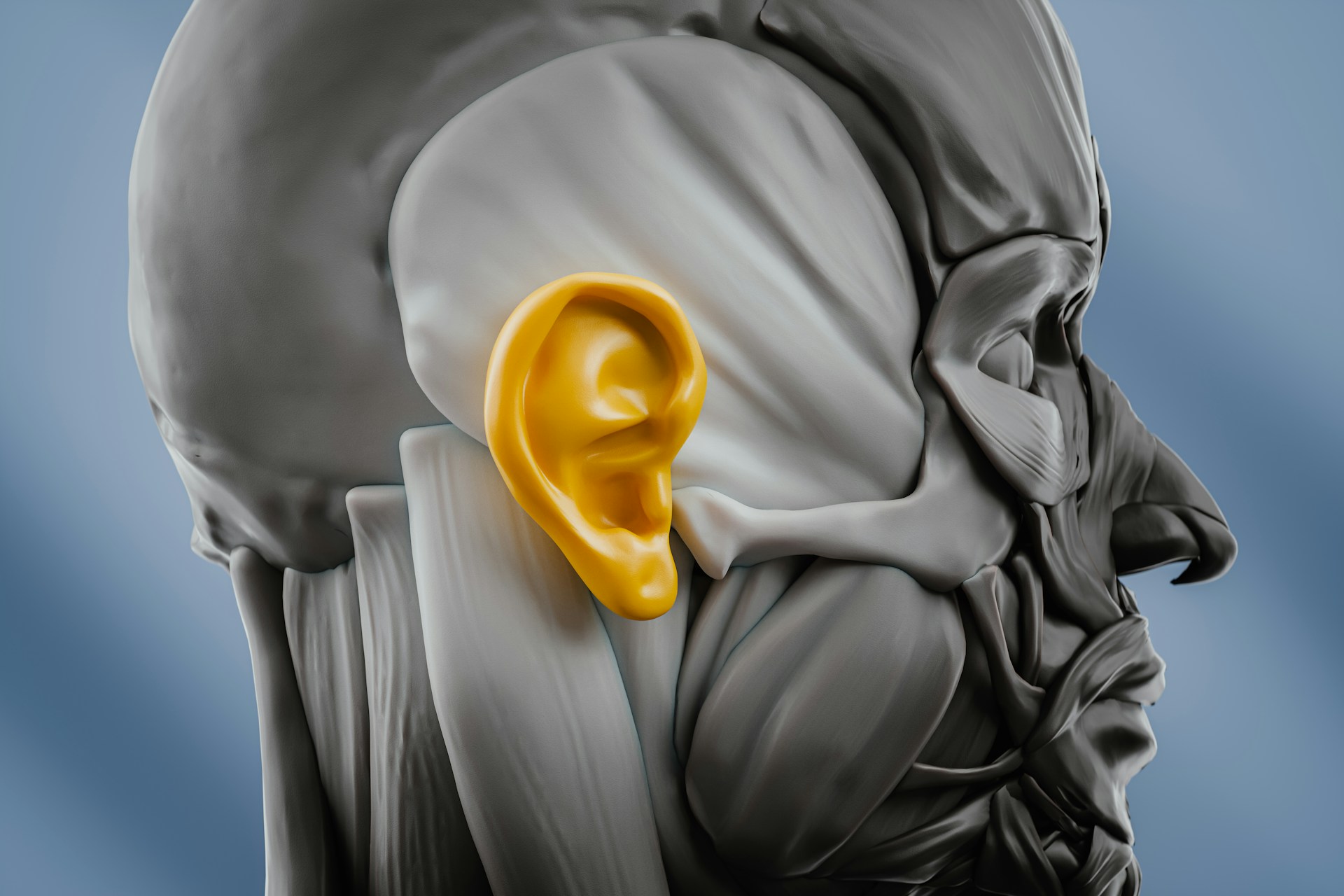Health
Memory Care: Supporting Cognitive Function
As we gracefully age, our minds, just like our bodies, need a bit of extra tender loving care. Ladies, let’s take a moment to talk about memory care. It’s not just about remembering where you left your glasses or the name of your favorite soap opera character. It’s about supporting your cognitive function, keeping your mind sharp, and living our golden years with vitality and joy.
Firstly, let’s demystify cognitive function. Think of it as your brain’s ability to read, learn, remember, reason, and focus. It’s the conductor of your symphony, the CEO of your personal corporation. It’s essential, and it’s something we should all be looking after.
Now, don’t be alarmed, but cognitive function can decline as we age. It’s a natural part of the process. But just like maintaining a healthy diet or regular exercise, there are ways we can support and even improve our cognitive health. Yes, ladies, we can teach an old brain new tricks!
Exercise
Exercise, for instance, is not only good for your heart and bones but also for your brain. Regular physical activity increases blood flow to your brain, which helps to support cell growth and connectivity. Plus, it releases endorphins, the body’s feel-good hormones. So, grab your walking shoes or dust off that old bicycle and get moving. You’ll be surprised at how a simple 30-minute walk can invigorate your mind.
Nutrition
Nutrition also plays a crucial role in cognitive health. Foods rich in omega-3 fatty acids, such as fatty fish and walnuts, are excellent for brain health. Antioxidants found in fruits and vegetables fight off harmful free radicals, protecting your brain from damage. And don’t forget about hydration – water is a key player in maintaining cognitive function. So, let’s raise a glass (of water) to our brains!
Mental wellness
Mental wellness is another important aspect of memory care. Stress, anxiety, and depression can all take a toll on our cognitive function. It’s essential to find ways to relax and rejuvenate. This could be through meditation, yoga, or simply sitting quietly in your favorite armchair with a good book. Remember, it’s not selfish to take time out for yourself. Your brain will thank you for it.
Positivity and social engagement
Positivity and social engagement are also vital for cognitive health. Engaging in social activities, whether it’s joining a book club, taking a cooking class, or simply calling a friend for a chat, keeps your brain active and engaged. Plus, laughter truly is the best medicine. It releases a cocktail of hormones that promote brain health and general well-being.
Cooking
Cooking, too, can be a great way to support cognitive function. Following a recipe requires focus and memory skills, and the act of cooking itself can be therapeutic. Plus, you get to eat the results – a win-win situation!
Cardio exercises
Cardio exercises like swimming, jogging, or dancing are fantastic for boosting your heart rate and increasing blood flow to the brain. Plus, they’re fun! Who said exercise had to be a chore?
Aging is a fact of life, and it’s something to be embraced. With age comes wisdom, experience, and a refined sense of style. But it also brings changes to our bodies and brains. By taking steps to support our cognitive function, we can age with grace, confidence, and a sharp mind.
Let’s take care of our brains as well as our bodies. Let’s embrace the challenges and enjoy the rewards. After all, these are the years to shine. Here’s to strong minds and happy hearts!

Health
Unlock the Heart Benefits of Garlic: A Natural Boost for Blood Pressure

Managing high blood pressure is crucial for maintaining heart health, but traditional medications often come with a host of side effects. This has led many to explore natural alternatives, with garlic emerging as a popular choice. But does garlic genuinely help in reducing blood pressure, or is it just another health myth?
High blood pressure, or hypertension, is a silent condition affecting roughly one-third of adults in Western countries. Despite its lack of symptoms, it significantly elevates the risk of heart disease and stroke. This has fueled interest in natural remedies like garlic, which may offer a safer way to manage blood pressure.
Garlic, scientifically known as Allium sativum, has been used as a natural remedy for lowering blood pressure since ancient times. Recent studies suggest that this traditional use of garlic may indeed be effective. In some cases, garlic has been found to be as potent as standard blood-pressure medications, but with fewer side effects.
One comprehensive review of randomized controlled trials found that garlic supplements could lower systolic and diastolic blood pressure by 6.7 and 4.8 mmHg, respectively, without causing serious side effects. Participants in these studies took between 188 and 2,400 mg of garlic powder supplements or aged garlic extracts daily for a period of 8 to 12 weeks.
Additional reviews have echoed these findings, reporting blood pressure reductions ranging from 2.5 to 11.2 mmHg after taking 600 to 2,400 mg of garlic powder daily over 8 to 24 weeks. These results suggest that garlic’s blood-pressure-lowering effects are most pronounced in individuals with elevated blood pressures compared to those with normal levels.
In summary, garlic may help reduce both systolic and diastolic blood pressure by up to 11.2 mmHg. In some cases, garlic supplements might be as effective as standard medications, offering a natural alternative with fewer side effects.
Let us know what you think, please share your thoughts in the comments below.
Health
Mastering Life with Severe Allergies: Your Essential Guide to Safety and Peace of Mind

Living with severe allergies can be a daunting challenge, but with the right strategies and precautions, it’s possible to manage them effectively. Allergic reactions occur when the immune system mistakenly identifies a harmless substance as a threat. While most allergies are mild, some can be severe and potentially life-threatening. Here are some essential tips to help you navigate the world with dangerous allergies.
Identify and Avoid Your Triggers
Understanding your specific allergens is the first step in managing severe allergies. The only surefire way to prevent an allergic reaction is to steer clear of your triggers entirely.
Though this might seem like a daunting task, it’s crucial for your safety.
Stay Informed About Medication Allergies
Certain medications are more likely to cause severe allergic reactions. Always communicate any known drug allergies to your healthcare providers.
For example, “In the case of a penicillin allergy, you may be told to avoid similar antibiotics, such as amoxicillin (Moxatag).”
If a necessary medication poses a risk, your doctor might prescribe a corticosteroid or antihistamines to mitigate potential reactions.
Communicate Food Allergies Clearly
Avoiding food allergens can be especially challenging, particularly when dining out or eating food prepared by others. When at a restaurant, don’t hesitate to ask detailed questions about the ingredients in your dish.
“Most packaged foods now carry warnings on the label if they contain common allergens,” so always read labels carefully when grocery shopping.
When visiting friends, inform them of your allergies beforehand to ensure a safe dining experience.
Take Precautions Against Insect Venom
For those allergic to insect venom, outdoor activities can be anxiety-inducing. To minimize the risk of bites and stings, wear protective clothing and use insect repellent.
Being vigilant about your surroundings can help make outdoor adventures safer and more enjoyable.
Be Prepared for Cross-Contamination
Cross-contamination is a real concern for individuals with food allergies. This occurs when foods come into contact with allergens before consumption.
Be aware of potential sources of cross-contamination, such as shared cooking surfaces or utensils, and take steps to prevent it.
Living with severe allergies requires vigilance and proactive measures, but it doesn’t mean you have to live in fear. By identifying your triggers, communicating effectively, and taking necessary precautions, you can lead a fulfilling and safe life. Remember, knowledge and preparation are your best allies in managing dangerous allergies.
Let us know what you think, please share your thoughts in the comments below.
Health
Find Relief from Tinnitus with These Effective Remedies

Navigating the constant ringing or buzzing in your ears can be frustrating and sometimes overwhelming. Known as tinnitus, this condition affects about 10 percent of people in the United States each year, even if just for a few minutes. While it may not be a disease itself, tinnitus is a symptom that suggests there’s a problem somewhere in your ear or the nerves connected to it. Fortunately, there are several remedies available, ranging from sound-based therapies to lifestyle changes, that can help manage the intensity of tinnitus and improve your quality of life.
Identify the Underlying Cause
The first step in addressing tinnitus is to determine its underlying cause. A doctor can help assess whether there’s a specific issue that can be treated with medications or surgery. This is particularly effective when tinnitus is linked to hearing loss, as addressing the hearing issue can often alleviate the symptoms of tinnitus.
Use Hearing Aids
Hearing aids can be a powerful tool for those experiencing tinnitus, especially when it’s related to hearing loss. These devices amplify external sounds, which can help the brain process sound differently. According to a survey of 230 healthcare professionals, about 60 percent of people with tinnitus experienced some improvement with a hearing aid, and roughly 22 percent found significant relief. The better you hear, the less you may notice your tinnitus.
Sound-Masking Devices
Sound-masking devices provide external noise to help drown out the internal sounds of tinnitus. These can range from tabletop sound machines to small devices placed in your ear. Most people prefer a level of external sound slightly louder than their tinnitus, though some opt for a masking sound that completely drowns out the ringing. It’s worth noting that broadband noises like white noise are usually more effective than nature sounds, according to a 2017 study.
Customized Sound Therapy
For a more tailored approach, modern medical-grade devices can create customized sounds specific to your tinnitus. These devices are worn occasionally and may offer benefits even after they are turned off. Over time, you might notice long-term improvement in the loudness of your tinnitus. However, these devices can be costly and are often not covered by insurance.
Consider Lifestyle Changes
Lifestyle changes can also play a critical role in managing tinnitus. Reducing stress, avoiding loud noises, and maintaining a healthy diet can contribute to lessening the symptoms. While these changes might not eliminate tinnitus entirely, they can improve your overall well-being and help you cope better with the condition.
Living with tinnitus doesn’t have to be a constant struggle. From identifying the root cause to exploring sound-based therapies and making lifestyle adjustments, there are various strategies to help manage the symptoms. While there’s no cure for idiopathic tinnitus, these remedies can significantly enhance your quality of life, making the condition more manageable.
Let us know what you think, please share your thoughts in the comments below.
-

 Health5 months ago
Health5 months ago17-Second Neuropathy Solution
-

 Nutrition9 months ago
Nutrition9 months agoThe Aging Secret of Vitamin D Unveiled
-

 Health1 year ago
Health1 year agoPreventing Falls and Injuries for Seniors
-

 Health4 months ago
Health4 months agoOncologist Reveals Top 5 Cancer Prevention Tips You Shouldn’t Ignore
-

 Nutrition1 year ago
Nutrition1 year ago5 AMAZING Dinner Recipes That Are Also HEALTHY
-

 Lifestyle5 months ago
Lifestyle5 months agoSleep Soundly with These 11 Expert-Approved Bedtime Routines
-

 Health10 months ago
Health10 months agoDownsizing Tips: Simplifying Your Lifestyle
-

 Lifestyle1 month ago
Lifestyle1 month agoMorning Habits That Could Add Years to Your Life
